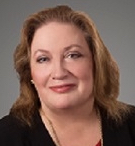AMARILLO, TX – Fallout from a high-profile bankruptcy case in the DME world provides a lesson for suppliers on the basics of bankruptcy and what you can do to protect your company. Case in point: the collapse of Florida-based Univita and its August 2015 bankruptcy’s wide ripple effect across the industry. The company operated in multiple states including Florida, Tennessee, California, Minnesota, Indiana and Massachusetts.
 Its meteoric rise, particularly in Florida, and its disastrous fall, left many suppliers scrambling to determine if and how they would be paid for their outstanding claims. Hundreds of creditors were listed in Univita’s bankruptcy filing, including many DME suppliers, large and small, that are still waiting to see if they will recover any amounts owed them.
Its meteoric rise, particularly in Florida, and its disastrous fall, left many suppliers scrambling to determine if and how they would be paid for their outstanding claims. Hundreds of creditors were listed in Univita’s bankruptcy filing, including many DME suppliers, large and small, that are still waiting to see if they will recover any amounts owed them.
Adding insult to injury, last month suppliers began to receive letters from Univita’s bankruptcy trustee demanding repayment of money Univita paid to suppliers prior to its bankruptcy filing. Unfortunately, this type of recoupment action is legal under the Bankruptcy Code. Under section 547 of the Bankruptcy Code a bankruptcy trustee can recover certain payments, known as “preferences,” made by a debtor during the 90-day period preceding the filing of its bankruptcy petition.
 So what should you do if you receive a letter from the bankruptcy trustee indicating your company must repay these preference payments to Univita?
So what should you do if you receive a letter from the bankruptcy trustee indicating your company must repay these preference payments to Univita?
You should reply! The first step to reducing the risk of having to repay preference payments is not to ignore the letter but to understand that you may have a viable defense. In preference payments the burden is on the supplier to assert a defense against the bankruptcy trustee’s demand. Section 547 lays out eight defenses that are designed to ensure that ordinary, good faith business transactions are not ultimately reversed by the bankruptcy court. Out of the eight defenses that Section 547(c) of the Bankruptcy Code grants there are three that are used the most often. Those three defenses are outlined below.
1) Subsequent New Value Defense (§ 547(c)(4))
As a creditor, you are entitled to a credit against a preference claim for the amount of any new credit extended to the debtor after receiving an alleged preferential payment, but only if the creditor did not receive payment on the new credit extended. In general, you must be prepared to show that the credit was extended after the payment was received and that you were not paid on the subsequent credit extended. In analyzing this defense, look for your invoices that remain unpaid. Compare and apply the unpaid invoices against any alleged preferential transfers on a transaction-by-transaction basis to avoid comparing net payment against credit.
2) Contemporaneous Exchange for New Value Defense (§ 547(c)(1))
To use this defense, you must show you provided new goods or services contemporaneously with a payment that was of equal value to the goods and services provided, and that both parties intended the transaction to be a “contemporaneous exchange.” An example of a valid new value defense would be if you received a $75 payment on December 1st and delivered goods worth $75, and the parties intended the $75 payment to be for the $75 in new goods. Please note that if the $75 payment was for a previous invoice then the defense is not applicable.
3) Ordinary Course of Business Defense (§ 547(c)(2))
To invoke this defense, you must prove that:
• Debt was incurred in ordinary course of business or financial affairs of both the creditor and the debtor;
• and debt was repaid within terms that are ordinary as between the parties; or
• the repayment was made within industry norms.
But what does “payments deemed to be ordinary between parties” look like? How should a supplier demonstrate that the payments were in the ordinary course of business? Suppliers should not assert their agreed upon verbal or written payment terms. Instead, turn to evidence of ordinary course of dealing between parties. Review billing and payment history between the parties ending at the date that is 90 days before the bankruptcy filing. Compare the billing and payment history from before the 90 day date to any billing or paying action that occurred within the 90 day period. Was there an enormous bump in the payout from the debtor? Is there evidence of overt collection activity on the part of the creditor? Or do both sides of the 90 day mark mirror each other? If they mirror each other a supplier may be able to assert an ordinary course of business defense. Evidence that courts have accepted in the past include payment dates, past invoices, and testimony regarding the lack of collection activities.
In dealing with the bankruptcy trustee you should be prepared to assert any applicable defenses to negate the bankruptcy trustee’s recovery of the payments you received. In general, trustees desire to avoid litigation and may be open to resolving these claims. It is advisable to consult with legal counsel, particularly for large demands from the trustee.
Denise Leard will be presenting the following webinar:
AAHOMECARE’S EDUCATIONAL WEBINAR
Audits: Steps to Avoid … and Steps to Respond
Presented by: Denise M. Leard, Esq., Brown & Fortunato, P.C.
Tuesday, January 17, 2017
2:30-4:00 p.m. EASTERN TIME
Medicare has a huge arsenal of weapons it can use in order to find and request overpayments. Knowing the various types of audits and how to respond effectively can limit recovery by Medicare. Being successful with the additional documentation request will allow a supplier to avoid the overburdened and delay-plagued appeals process. This is key to surviving in today’s audits environment. This program focuses on audits aimed at HME suppliers and prepares the supplier to appropriately respond to requests for documentation.
Learning Objectives:
1) The supplier will be able to distinguish the various entities auditing HME claims for Medicare and understand the implications of the audits.
2) The supplier will learn ways to be proactive on protecting itself from Medicare audits.
3) The supplier will be able to prepare documentation responsive to a prepayment or post-payment additional documentation request.
Register for Audits: Steps to Avoid … and Steps to Respond on Tuesday, January 17, 2017, 2:30-4:00 pm ET, with Denise M. Leard, Esq., of Brown & Fortunato, PC.
Contact Ika Sukh at [email protected] if you experience any difficulties registering.
FEES: Member: $99.00
Non-Member: $129.00
Jeff Baird will be presenting the following webinar: Webinar sponsored by Mediware Information Systems, Inc.
Telehealth Arrangements: What is Proper and What is a Sham?
Presented by: Jeffrey S. Baird, Esq., Brown & Fortunato, P.C.
Thursday, January 19, 2017
1:00-2:00 p.m. CENTRAL TIME
Telehealth is a good thing. Having a telehealth encounter with a physician saves time, saves money, and is often just as effective as an in-person physician/patient encounter. It is fair to say that telehealth is the “wave of the future.” Having said this, when the DME supplier receives a physician order arising out of a telehealth encounter, the supplier needs to be aware of when the telehealth encounter is legitimate … and when it is a “sham.” While a legitimate telehealth encounter results in a legitimate physician order that should result in payment to the DME supplier, a sham telehealth encounter will result in denial of the supplier’s claim….and may result in a government investigation of the supplier if it participated in the sham. This webinar will discuss a number of issues pertaining to telehealth encounters, including the following: (i) telehealth requirements vary from state to state; for example, some states allow “audio only” encounters while other states require “visual and audio” encounters; (ii) if the encounter does not meet Medicare requirements for reimbursement to the physician, then Medicare will not pay the supplier for the underlying product … notwithstanding that state law is met; and (iii) if the DME supplier is directly or indirectly paying the physician for the telehealth encounter, then the Medicare anti-kickback statute is likely violated.
Register now for “Telehealth Arrangements: What is Proper and What is a Sham?” on Thursday, January 19, 2017, 1:00-2:00 pm CT, with Jeffrey S. Baird, Esq., of Brown & Fortunato, PC.
Contact Kolby Wegener at [email protected] if you experience any difficulties registering.
This webinar is free for attendees.
Valerie J. Eastwood, JD, and Erica L. Beacom, JD, are attorneys with the Health Care Group at Brown & Fortunato, PC, a law firm based in Amarillo, Tex. They represent pharmacies, infusion companies, HME companies and other health care providers throughout the United States. Eastwood can be reached at (806) 345-6371 or [email protected] and Beacom can be reached at (806) 345-6360 or [email protected]

